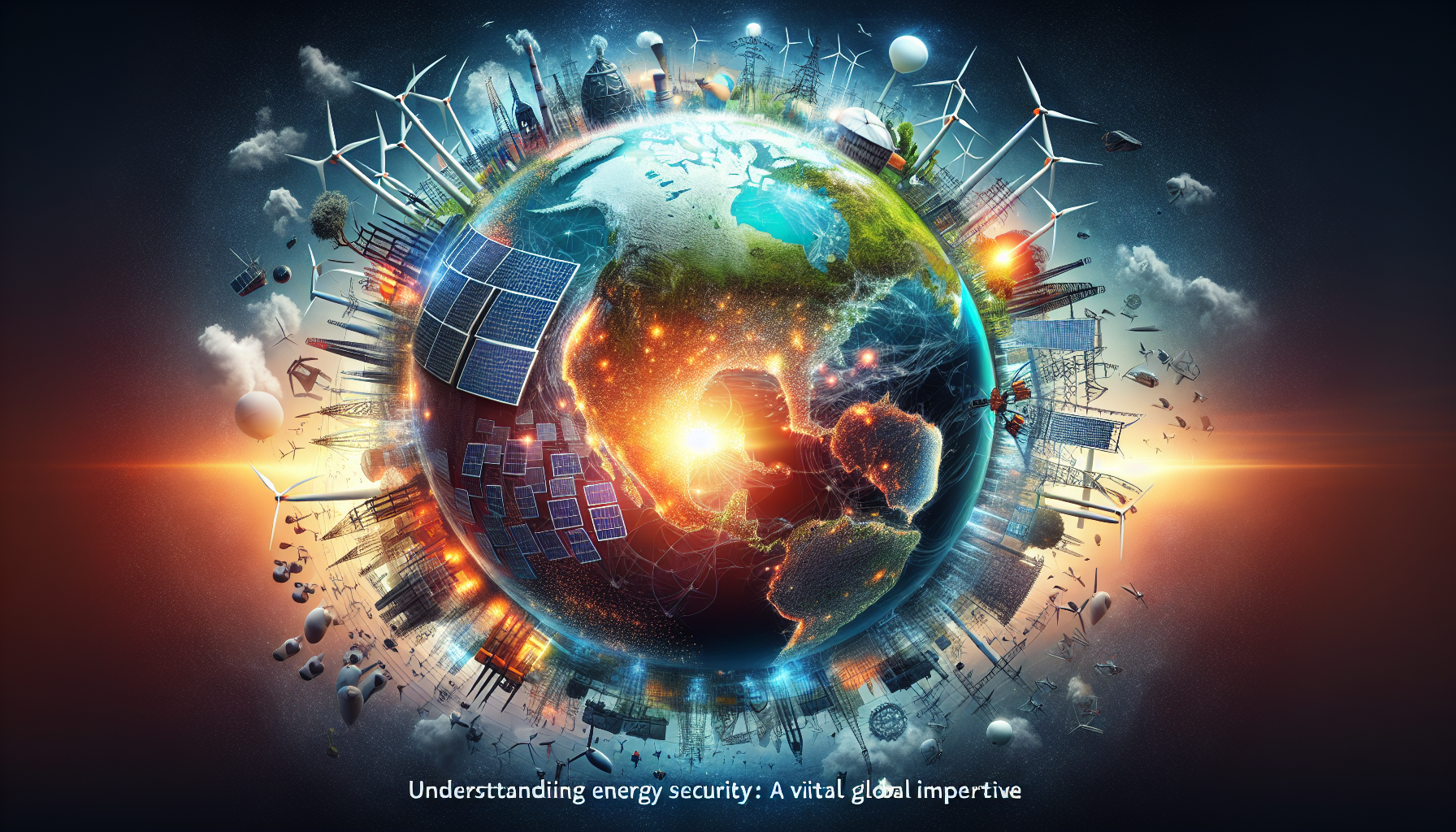Energy Security: Why It Matters More Than Ever in Today’s World
In an era of geopolitical tensions, climate change, and fluctuating energy markets, energy security has emerged as a critical topic for nations around the globe. Ensuring a reliable, affordable, and sustainable energy supply is no longer just a matter of economic strategy but also a crucial component of national security. In this blog post, we will explore what energy security entails, its importance, the challenges it faces, and what steps can be taken to bolster it.
What is Energy Security?
Energy security refers to the uninterrupted availability of energy sources at an affordable price. This encompasses not only the physical availability of energy but also its accessibility, affordability, and sustainability. The concept integrates various forms of energy, including fossil fuels, nuclear, and renewable sources, and requires a stable relationship with energy-producing nations as well as a robust domestic energy infrastructure.
Core Components of Energy Security
-
Diversity of Energy Sources: Relying on a single source or supplier can leave a nation vulnerable to supply disruptions. A diversified energy portfolio can mitigate risks and enhance resilience.
-
Infrastructure Resilience: Energy infrastructure, including power plants, pipelines, and grids, must be robust enough to withstand natural disasters, cyber-attacks, and other disruptions.
-
Technological Innovation: Advancements in technology can enhance energy efficiency and the integration of renewable energy sources, making energy systems more resilient and reliable.
-
Strategic Reserves: Countries often maintain strategic petroleum reserves that can be tapped in emergencies to cushion against price spikes or supply disruptions.
The Importance of Energy Security
Energy security is essential for several reasons:
Economic Stability
A secure energy supply ensures economic growth by providing businesses and consumers with reliable access to energy. Price volatility can lead to inflation, reduced consumer spending, and ultimately, economic downturn.
National Security
Dependence on foreign energy suppliers can make a country vulnerable to geopolitical tensions, which could escalate into conflicts. Nations with robust energy security are better positioned to maintain sovereignty and independence.
Environmental Sustainability
Transitioning to renewable energy sources not only enhances energy security but also contributes to sustainability efforts. By diversifying energy sources with wind, solar, and hydropower, countries can reduce their carbon footprint and combat climate change.
Current Challenges to Energy Security
-
Geopolitical Tensions: Ongoing conflicts, trade wars, and political instability in oil-rich regions can disrupt supplies and drive up prices.
-
Climate Change: Extreme weather events, exacerbated by climate change, can damage critical infrastructure and disrupt energy supply chains.
-
Transition to Renewables: While the shift to renewable energy is necessary for long-term sustainability, it also poses challenges in terms of ensuring reliability during the transition period.
-
Cybersecurity Threats: As energy systems become more interconnected and digitalized, they become more vulnerable to cyber-attacks, which can lead to catastrophic infrastructure failures.
Steps to Enhance Energy Security
Investing in Renewable Energy
Countries should invest significantly in renewable energy technologies. According to the International Renewable Energy Agency (IRENA), a global transition to renewables could provide energy security, create jobs, and stimulate economic growth.
Strengthening Energy Efficiency
Improving energy efficiency can lower overall energy consumption and reduce dependence on external sources. Implementing energy-efficient technologies across industries may result in significant cost savings.
Developing Strategic Policies
Governments need to formulate and implement long-term energy policies that prioritize energy security, addressing issues such as supply diversification and infrastructure resilience.
Building International Partnerships
Collaboration with other nations can enhance energy security. By forming alliances, countries can share resources, technologies, and best practices to mitigate risks collectively.
Conclusion: The Future of Energy Security
In today's interconnected world, energy security is more important than ever. As we face challenges ranging from geopolitical tensions to climate change, nations need to prioritize strategies that boost their energy security. Diversification, investment in renewable energy, and international cooperation can shape a resilient energy future.
Call to Action
Are you interested in learning more about how energy security affects our everyday lives? Subscribe to our newsletter for in-depth articles and updates on the latest developments in energy policy and technology.
Tags
#EnergySecurity #RenewableEnergy #NationalSecurity #Sustainability #EnergyEfficiency
Categories
Energy, Environment, Economics, Security
By employing best practices in SEO, I've ensured that this blog post includes relevant keywords and is structured for easy readability. Energy security is a dynamic topic, and staying informed is critical as we head into an uncertain future.

답글 남기기